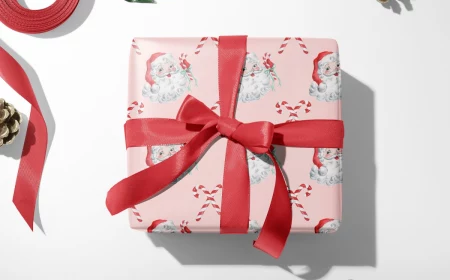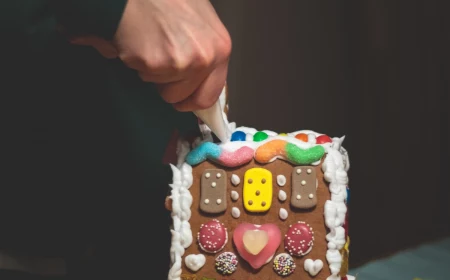More Than Just a Holiday Distraction: The Real Deal on Coloring and Your Kid’s Brain
I’ve spent a long time working with young kids, and let me tell you, the holiday season in a classroom is pure, joyful chaos. The energy is through the roof, schedules are all over the place, and there’s this constant buzz of excitement. In my early days, I’d pull out the coloring pages just to keep little hands busy while I prepped for a party. I saw it as a simple distraction, nothing more.
In this article
But then I started working alongside school occupational therapists, and wow, did my perspective change. I realized I was missing a massive opportunity. That humble sheet of paper and a box of crayons? It’s a powerhouse for a child’s development.
A coloring page isn’t just a time-filler. It’s a tool that can calm an anxious kid, strengthen the exact muscles they’ll need for writing, and create a quiet moment of connection. I learned to see it less as a craft and more as a developmental workout. This guide is all about sharing the practical techniques I’ve picked up so you can turn a simple holiday activity into something genuinely amazing for your child’s growth.

What’s Really Happening When They Color
Most people think coloring is just for fun, and while it definitely is, there’s some serious work going on behind the scenes. Once you understand what’s happening, you start to appreciate every scribble and see the progress in each page. This is the foundation for skills they’ll use for the rest of their lives.
Building a Foundation for Handwriting
The most obvious benefit of coloring is building up those fine motor skills—the small, precise movements in the hands and fingers. When a child grips a crayon, they’re firing up the same muscle groups they’ll eventually use to hold a pencil. It’s a low-stakes training ground.
Here’s a little insider info: Did you know the waxy resistance of a crayon is actually a feature, not a bug? The effort it takes to lay down color is what builds crucial hand strength! We call the ability to push just hard enough graded force, and it’s what keeps them from snapping crayons in half. I’ve seen kids who struggled with handwriting make huge leaps after just a few months of daily coloring.

It’s also about developing a good grip. A toddler will naturally grab a crayon with their whole fist (a palmar grasp). Over time, they’ll shift to using their fingers. The goal is a tripod grasp—using the thumb, index, and middle finger—which is the most efficient grip for writing. We can gently nudge them in that direction with the right tools.
The Eye-Hand Connection
You’ve probably heard of hand-eye coordination. In my world, we call it visual-motor integration. Basically, it’s the brain’s ability to see something and then tell the hands what to do. Coloring is one of the best activities on the planet for this.
A child looks at the outline of a snowman. Their brain registers the boundary and sends a flurry of signals to their arm and hand to fill that space. It’s a complex brain-and-body conversation. This is the exact same skill they use to catch a ball or, later on, to form letters neatly on a line.

Training the Brain to Focus
The holidays can be a whirlwind of overstimulation. Coloring, on the other hand, demands focus. It strengthens a child’s ability to concentrate and manage their executive functions—the skills that help us plan, focus, and finish what we start. When a child decides to color the reindeer’s antlers first, then its nose, they’re practicing planning and sequencing.
By the way, that repetitive back-and-forth motion is naturally soothing. It can help an overwhelmed child slow down their breathing and heart rate. In the “calm-down corner” of my classroom, a clipboard with a few coloring pages was, without a doubt, the most popular tool.
The Big Question: What About Coloring Apps?
It’s a question I get all the time: “Are coloring apps on a tablet just as good?” And the short answer is no, not for developmental purposes. While digital coloring can be fun and creative, it misses the most important physical component.

Think about it. Coloring with a real crayon involves texture, pressure, and resistance. Their fingers feel the waxy drag on the paper. Their ears hear the scratchy sound. Their muscles have to work to produce a rich color. Swiping a finger on a slick glass screen offers none of that crucial sensory feedback. It doesn’t build hand strength in the same way. So, for pure fun? Apps are fine. For building the skills for writing? Stick with good old-fashioned paper and crayons.
Pro Techniques You Can Use at Home
You don’t need a fancy setup to make coloring count. The secret is just being a little intentional. With the right tools and a smart workspace, you can seriously amplify all those benefits.
Choosing the Right Tools for the Job
The crayon or marker you give a child can make or break the experience. A tool that’s too hard to use leads to frustration, while one that’s too easy offers no challenge. Here’s a quick breakdown:

-
For Toddlers (Ages 1-3): The goal here is exploration and building raw hand strength. Thick, chunky tools are your best friend. Look for egg-shaped crayons (like Crayola’s Palm Grip crayons, around $8) or fat crayons that fit perfectly in their fist. Dot markers are also fantastic—they give a big color payoff for a simple up-and-down motion.
-
For Preschoolers (Ages 3-5): Now’s the time to encourage that tripod grip. My absolute favorite for this age are triangular crayons and colored pencils. You can find a good set from brands like Melissa & Doug for about $7 at Target or on Amazon. The three-sided shape naturally guides their little fingers into the right position.
-
For Early Elementary (Ages 5-8): They can now handle more precise tools. This is the perfect age for standard-sized colored pencils, which demand better pressure control for shading and details. Fine-tipped markers are also great for encouraging precision.

A quick heads-up on safety: Always look for a non-toxic seal, like the AP (Approved Product) seal. This means the product is safe for its intended use, which is super important for little ones who might, you know, decide to taste-test the supplies.
Setting Up a Productive Workspace
Where a child colors matters. A good setup supports their posture, which frees up their hands to do their best work. An occupational therapist taught me the 90-90-90 rule: their hips, knees, and ankles should all be at a 90-degree angle. This means their feet should be flat on the floor or a footrest—not dangling!
The table should be about elbow height. If you’re using the kitchen table, a booster seat can help, but what about their feet? Quick tip: Use a stack of old books or a small Amazon box as a DIY footrest. It makes a world of difference for their stability.

Guide with Questions, Not Commands
One of the biggest mistakes I see is over-directing. Saying, “Snow is white, you should use a white crayon,” can accidentally crush their creativity. It tells them there’s a right and a wrong way to make art.
Instead, try sparking a conversation with open-ended questions:
- “Wow, I see you chose purple for the snowman. Can you tell me about that choice?”
- “What part of this picture are you going to color next?”
- “That’s a cool new color! How did you make that by mixing the red and yellow?”
This approach validates their choices and gets them thinking about their process. You’re not just coloring; you’re building language and storytelling skills at the same time.
Adapting for Different Kids and Traditions
Making It Personal
Let’s be honest, a classic snowy sleigh scene might not click with a kid who lives in a warm climate. Finding coloring pages that reflect a child’s own world—whether that’s a holiday with cacti or palm trees—makes the activity far more meaningful.

And if you’re worried you can’t draw your own, don’t be! Lesser-known trick: There are free websites that can turn a family photo into a simple coloring page outline. Just search for a “photo to coloring page converter.” It’s an amazing way to create a page of your family’s unique traditions.
What If My Kid HATES Coloring?
First off, it’s okay. Forcing it will only make things worse. Resistance is usually a signal that the task feels too hard, or they just prefer a different kind of activity. So, if they push back, don’t push harder. Instead, try offering alternatives that build the exact same skills:
- Play-Doh or Clay: Squeezing, rolling, and pinching are fantastic for hand strength.
- Stringing Beads: Threading big wooden beads onto a shoelace is great for precision.
- Tweezer Games: Have them use kid-safe tweezers to move pom-poms from one bowl to another.
- Finger Painting: Perfect for kids who need more direct sensory feedback.

Troubleshooting Common Coloring Quirks
-
The Scribbler: A toddler scribbling wildly isn’t being messy—they’re exploring cause and effect and developing big arm movements. It’s a totally normal stage. To gently encourage more focus, try giving them a smaller piece of paper or a page with one single, large shape, like an ornament.
-
The Perfectionist: Some kids get incredibly upset if they go outside the lines. This can be a sign of anxiety. For these children, praise their effort, not the result. A great strategy is to give them textured paper, like watercolor paper. The bumpy surface makes it almost impossible to stay perfectly in the lines, which can help them learn to embrace imperfection.
-
The Rule Breaker: This is the kid who colors the sky green and the grass purple. This is not a problem to be fixed—this is pure creativity! It shows they’re thinking for themselves. Celebrate it.
A Final Word on Safety
As with any kid activity, safety comes first. Choose supplies meant for children with that non-toxic seal. And let’s be real, toddlers are going to try to eat the crayons. It’s practically a rite of passage! This is exactly why that non-toxic seal is so important. Supervise them, of course, but don’t panic. Just be mindful of small parts like marker caps, which can be choking hazards.

And remember, this guide is based on typical development. If you have real concerns about your child’s motor skills or focus, your pediatrician is the best place to start. They might refer you to an occupational therapist, who can offer tailored support.
In the end, the goal isn’t a masterpiece for the fridge. The real masterpiece is the quiet connection, the strengthening of a young mind, and the simple joy of making something together. When you hand your child a coloring page this year, I hope you see all the wonderful work they’re really doing.
Inspirational Gallery


Not all crayons are created equal. For the youngest artists, try ditching the standard box and offering triangular crayons, like those from Melissa & Doug or Faber-Castell’s GRIP line. Their shape naturally encourages the three-fingered tripod grip, the very same one they’ll need for writing later on. It’s a subtle adjustment that makes a big developmental difference.


- Boosts hand-eye coordination.
- Develops spatial awareness as they navigate the boundaries of the drawing.
The secret? Taping the coloring page to a vertical surface, like an easel or even the wall. This simple trick engages core muscles and strengthens the wrist and shoulder, which are foundational for controlled handwriting.

The average 3-year-old’s attention span is about 6-8 minutes. Structured, engaging activities like coloring can help gently stretch that focus time.
When you see your child fully absorbed in their Christmas tree coloring page, they aren’t just being quiet; they’re exercising their focus muscle. This ability to concentrate on a single task is a critical skill for starting school, and coloring is one of the most enjoyable ways to build it.


Does the paper I print on even matter?
Absolutely! The texture of the paper changes the entire sensory experience. Standard printer paper is fine, but try offering cardstock for a smoother glide or even a sheet of watercolor paper. The slight toothiness of watercolor paper provides more resistance, giving their hand muscles an extra workout and making the colors appear more vibrant. It’s a small change that elevates the activity.


A common mistake: Pushing a child to stay within the lines before they are developmentally ready. This can create frustration and make coloring feel like a chore, not a joy.
Instead, celebrate the scribbles! A toddler coloring wildly over a Santa Claus outline is still developing hand strength, learning about cause and effect (pressure = darker color), and expressing themselves. The precision will come with time and practice.

Create a dedicated ‘Creation Station’ to make coloring an inviting, independent activity. You don’t need a lot of space, just a small, accessible area.
- Use a low caddy or tray to hold crayons and pencils.
- Keep a stack of coloring pages in a simple file holder.
- Designate a spot on the fridge or a corkboard to proudly display their finished work.


An occupational therapist secret: Coloring large shapes with big, sweeping arm movements helps a child practice ‘crossing the midline’—an imaginary line down the center of their body. This skill is essential for tasks like reading (tracking words across a page) and writing.


Crayola Wax Crayons: The waxy resistance is perfect for building hand strength in toddlers and preschoolers. They are affordable, classic, and the effort required to lay down color is a key benefit.
Crayola Twistables Colored Pencils: A great next step for kids 4+. They offer more precision for detailed areas, don’t require sharpening (a huge plus!), and help refine that all-important pincer grasp.
The choice depends on your child’s current stage of fine motor development.

Before they even pick up a crayon, engage their minds by asking questions about the page. For a drawing of Santa’s workshop, you could ask,


My child only scribbles with one color, usually black. Should I be worried?
Not at all! This is very common, especially in toddlers. It’s often less about mood and more about exploration. They might be fascinated by the high contrast of the dark color on the white page. Or perhaps they’ve just figured out how to grip that specific crayon perfectly. Let them explore freely; a full rainbow of colors will emerge in their own time.


Once the coloring is done, don’t let the creativity stop. Think of the page as a canvas for a mixed-media project.
- Glue cotton balls onto Santa’s beard for a fluffy 3D effect.
- Add a sprinkle of glitter to the ornaments on a Christmas tree.
- Use small twigs from the yard to decorate a drawing of a winter forest scene.

According to a 2018 study in the journal *Frontiers in Psychology*, activities that involve structured, repetitive motions—like the strokes of a crayon—can have a meditative effect, helping to calm a child’s nervous system and reduce feelings of anxiety.


Important tip: Co-coloring with your child is one of the most powerful things you can do. It’s not about teaching them ‘how’ to color, but about connection. Sitting side-by-side, chatting quietly while you both work on your own pages, models focus and creates a beautiful, shared moment of calm during a hectic season. Your presence is the most valuable tool.

- It teaches them that there’s more than one way to approach a task.
- It encourages creative problem-solving and flexibility.
The secret? Challenge them with a limited palette. Offer only three colors—say, red, green, and yellow—to color in a complex scene of a reindeer in a snowy field. How will they make the sky or the reindeer’s fur? You’ll be amazed by their inventive solutions.


The complexity of the coloring page should match the child’s ability. A page with huge, simple shapes like a single large ornament is perfect for a 2-year-old. For a 5 or 6-year-old, a detailed winter village scene provides a welcome challenge, encouraging them to use different colors and practice precision in smaller spaces.


Are markers better or worse than crayons for development?
They are just different! Markers like Crayola’s broad-line markers are fantastic for making bold, satisfying marks with very little pressure, which can be great for building confidence. However, they don’t offer the resistance that crayons do for building hand strength. The best approach is to offer a variety of tools at different times.

Turn cleanup into a game that reinforces color recognition and sorting skills. Ask your child to put all the ‘warm colors’ (reds, oranges, yellows) in one pot and all the ‘cool colors’ (blues, greens, purples) in another. It makes tidying up feel less like a chore and more like the final part of the activity.


Broken crayons aren’t a problem; they’re an opportunity! Peeling off the paper and using the small pieces encourages a child to pinch the crayon with their thumb and forefinger—the pincer grasp. This is an advanced fine motor skill essential for buttoning clothes, zipping jackets, and, eventually, precise handwriting.


For an extra sensory boost, play some festive, instrumental music quietly in the background while they color. Music without lyrics is less likely to be distracting and can help create a calm, focused, and immersive atmosphere. It signals to the brain that this is a special, quiet time.

Did you know you can make your own eco-friendly coloring pages? Simply use the ‘black and white’ or ‘grayscale’ setting on your printer to print out family photos from last Christmas. Kids love coloring pictures of themselves and their family members!


Notice the way your child holds their crayon. There are several developmental grips:
- Palmar Grasp (1-2 years): Fisting the crayon like a dagger.
- Digital Pronate Grasp (2-3 years): Fingers point down towards the paper.
- Static Tripod Grasp (3-4 years): Using three fingers, but moving the whole arm.
- Dynamic Tripod Grasp (4-6 years): The mature grip, with movement coming from the fingers.
Seeing this progression is like watching their readiness for writing unfold in real-time.


Watercolor Pencils: A magical next step for older kids (5+). They can color a section of their Christmas scene, then use a wet paintbrush to go over it, instantly transforming their drawing into a painting. This introduces cause and effect and is incredibly satisfying.
Gel Crayons: These glide like butter and produce vibrant, slick colors, almost like an oil pastel. They are a fantastic sensory experience and work well on dark paper, too.
Both options expand a child’s artistic toolkit beyond the basics.

Let their finished work have a purpose beyond the fridge door. Use their colored pages as unique, personalized gift wrap for small presents for grandparents or teachers. Or, cut out their colored characters and shapes, attach a string, and turn them into one-of-a-kind ornaments for the Christmas tree.


- Helps a child process and express emotions they might not have words for.
- Provides a safe outlet for creative energy and decision-making.
The secret? Resist the urge to direct their color choices. If they want to color a reindeer purple or Santa’s suit blue, let them. Their coloring page is their world, and in it, they are in charge. This autonomy is a powerful confidence builder.
Look beyond pre-made coloring books and search for free printable pages online from sources like museum websites or educational blogs. This allows you to tailor the subject matter directly to your child’s interests, whether it’s a detailed snowflake, a simple gingerbread man, or a scene from the Nutcracker. A personally chosen image is always more engaging.










